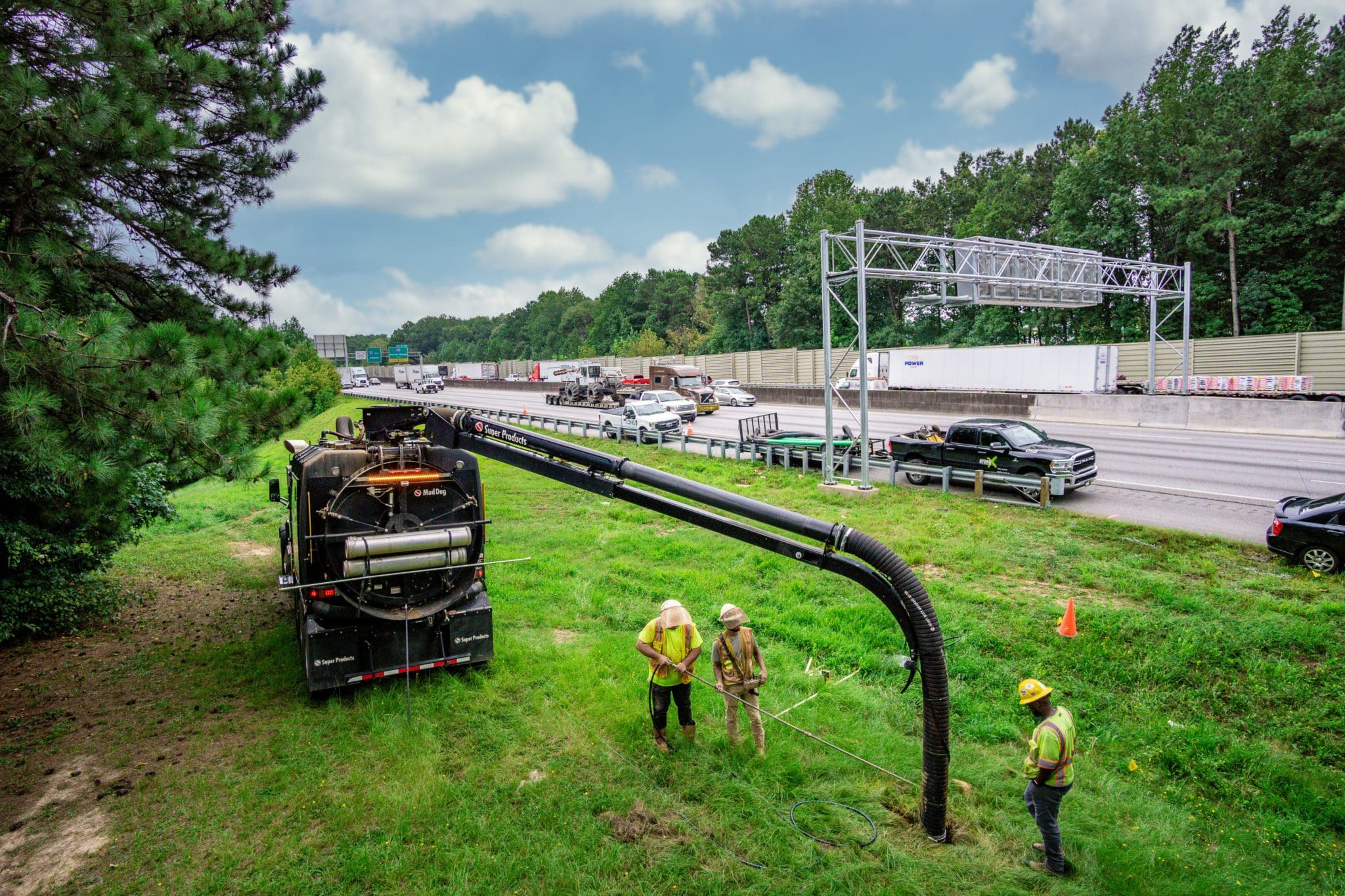The moment a shovel or backhoe bucket is put in the ground, there is a risk of hitting or damaging a utility line. As a result, locating underground utilities is critical to the design and construction of any roadway, infrastructure or building improvement project. Subsurface Utility Engineering (SUE) is a risk management process that combines civil engineering, surveying and geophysics. When used in conjunction with Utility Coordination (UC), SUE provides a method of characterizing, identifying and resolving utility conflict related issues.
SUE and UC are critical to minimizing impacts to existing utilities, but they can be even more beneficial and lead to greater cost savings when used during design, as opposed to during construction. SUE allows designers to make intelligent decisions regarding their design. Slight adjustments can produce substantial cost savings by reducing utility relocations and project delays.
In an independent study by Purdue University, a total of 71 randomly selected projects that utilized SUE were studied in detail from Virginia, North Carolina, Texas, and Ohio. The result — a savings of $4.62 for every $1.00 spent on SUE.
When establishing a SUE scope, only certain quality levels (QL-A, B, C, or D) may be recommended based on the project’s need and purpose. Our process is to identify the most cost-effective methods so that we can pass on significant cost and time savings to our clients and their customers. Additionally, when a SUE service provider is identified, a strong, established relationship with transportation and utility owners provides a significant advantage. Knowledge of SUE and UC, understanding of the utility industry, and strong relationships with key stakeholders help to expedite any utility-related project issues encountered.
Atlas, through its acquired company, Long Engineering, has played a critical role in developing Georgia DOT’s SUE program into one of the most advanced in the country today. Building on that expertise, we are focused on managing the risks associated with all aspects of utility coordination—mapping at appropriate quality levels, conflict analysis, relocation design, coordination, condition assessment, and consistently communicating all utility data to stakeholders.
Our crews routinely locate underground utilities including, but not limited to, water, gas, power, communication, CATV, fiber optics, fuel lines, force mains, and sanitary sewer lines. In addition, we utilize a full array of tools and technology to provide accuracy and quality results including radio detection designating equipment, ground penetrating radar, and vacuum excavation to existing utilities to determine their exact location, size, and elevation.
We have the necessary personnel to coordinate and manage high-volume workloads, while maintaining stringent Quality Control standards and schedules. This begins at the top management level and flows through our entire team. From a managerial perspective, Atlas is well-positioned and has recently completed additional key management hires, all of whom are seasoned industry leaders with proven experience in contract terms, issuing of task orders, and rapidly mobilizing personnel to complete work. Atlas team members Randy Sanborn, PE (VP SUE – Georgia and Florida); Tom Rock (VP of SUE – Carolinas); and Mike Goodman (VP of SUE – Virginia) are three of the Southeast’s most experienced SUE/UC managers, and they have each successfully managed large, statewide SUE contracts. These core individuals provide management redundancy and collaboration to quickly find creative solutions for challenging utility-related issues and have greatly assisted our efforts to serve additional markets such as the Carolinas, Virginia, and Florida.
Atlas was recently awarded a contract to provide statewide SUE services for the Georgia Department of Transportation (GDOT). Our team will support GDOT on an “On-Call” basis, and this newly awarded contract will remain in effect for three years. Additionally, Atlas currently manages SUE, survey, and UC services on 7 of the 11 GDOT – Major Mobility Investment Program (MMIP) projects. These projects represent the State’s largest, most ambitious transportation initiatives and include enhancements to I-75, I-85, SR 400, I-285, I-85, I-20, and over 100+ bridge locations.
A thorough knowledge of the design-build process as it relates to the SUE scope of service is extremely important for these types of projects. Additional work includes high-profile projects such as the Mercedes-Benz Stadium, several projects at the Hartsfield-Jackson Atlanta International Airport, award-winning and sustainable projects on college campuses, and projects for well-known utility companies such as Georgia Power and Southern Company Gas to name a few.
About the Author:
Randy Sanborn, PE is registered in Georgia, Florida, North Carolina and South Carolina and was instrumental in helping the Georgia DOT obtain funding for their first ever SUE project, making him the longest tenured utility provider in the State. With over 33 years of experience, Randy is widely recognized as an industry leader in the subsurface utility engineering (SUE) and utility coordination (UC) arena.
